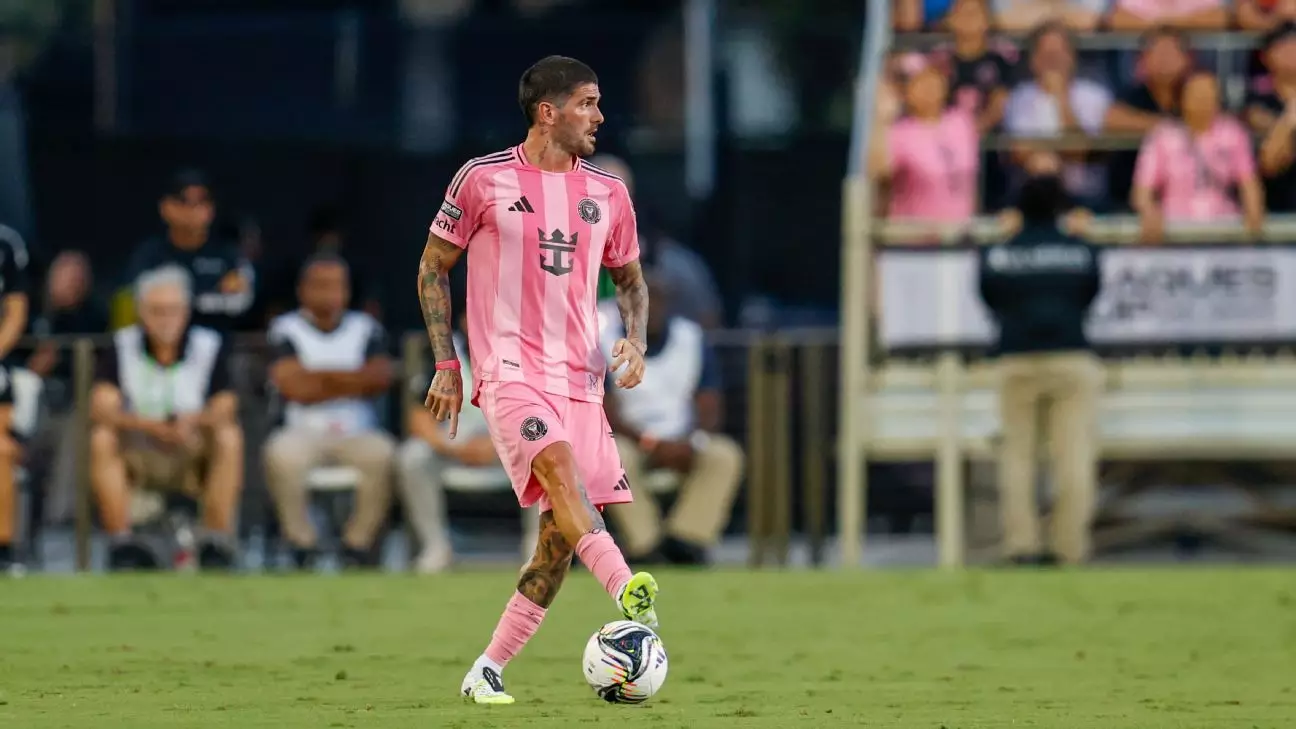In the landscape of contemporary football, talent alone no longer guarantees success; strategic alliances and marquee signings have become the currency of ambition. Inter Miami’s recent acquisition of Rodrigo De Paul exemplifies this shift. What makes this transfer particularly compelling is not just the player’s skills but the behind-the-scenes narratives that underscore a larger vision for the club’s future. The involvement of Lionel Messi in facilitating De Paul’s move transcends mere mentorship; it signifies a deliberate attempt by Inter Miami to position itself as a competitive powerhouse rather than a casual destination for aging stars.
Messi’s active engagement in the negotiation process signals a level of influence and intent that is appreciably rare. Instead of passively joining a club already on a trajectory of growth, Messi’s intervention suggests he believes in the club’s potential to evolve into a title contender. This cooperation between iconic players and ambitious clubs highlights a changing paradigm: stars now take ownership of their environments, shaping teams around their desire for success rather than settling for comfort or nostalgia. Such moves push MLS into a new realm where reputation, ambition, and serious competition take center stage.
De Paul’s Personal Aspirations and the Power of Legacy
Rodrigo De Paul’s remarks about Messi portray a warm and genuine camaraderie, but beneath that surface lies a significant statement about shared ambition. The Argentine midfielder’s desire to reunite with Messi was not merely nostalgic – it was strategic. Joining Inter Miami offers him a chance to create new career milestones, to compete for trophies, and perhaps most poignantly, to leave a lasting legacy in a league that remains underappreciated globally.
His description of the locker room as a “surprise” filled with hardworking, committed players underscores that the MLS is maturing into a league capable of attracting high-caliber athletes with serious competitive instincts. De Paul recognizes that success is no longer about simply being a star; it’s about contributing to a collective pursuit of excellence. This mindset exemplifies how the league’s profile is rising: it’s not just a destination for dying careers but a platform for serious contenders driven by professional pride.
Inter Miami’s Strategic Shift Toward Competitiveness and Prestige
For a club that has historically been associated more with star power than trophy cabinets, Inter Miami’s recent moves indicate a strategic pivot. The club’s willingness to splash out on short-term loans with options for permanence and Designated Player contracts signals a desire to build a sustainable, winning culture. The involvement of high-profile figures like Jorge Mas, who has personal ties with Madrid’s owner, demonstrates that Miami’s ambitions are backed by influential networks and serious financial commitment.
This isn’t just about adding names to a roster; it’s about crafting a winning environment where talent and ambition converge. The early result—the debut victory with a last-minute goal—showcases the immediate impact of these strategic signings. More importantly, it hints at the collective mindset of a team committed to competing at the highest levels, a mindset that could finally elevate the club from a regional attraction to a genuine contender in North America.
The Ephemeral Nature of Success and the Need for Consistency
While the hype around these high-profile signings is undeniable, the challenge remains — translating individual talent and star power into tangible trophies is far more complex. De Paul’s admission that the club is striving to “grow” and “win trophies” underscores the foundational goal: transforming potential into actual achievement.
The narrative of world-class players joining a league with aspirations appears impressive, but the true test lies in sustained competitiveness, tactical evolution, and the cultivation of a winning culture. The fact that De Paul immediately integrated into the team and even celebrated a goal in his debut suggests promise; however, consistency over a grueling season will reveal whether this revolution is sustainable.
In the end, Miami’s strategy reflects an understanding that in modern football, talent must be paired with relentless ambition, excellent management, and a dash of luck. The club’s willingness to pursue these qualities indicates a bold new chapter—not just for the team, but for Major League Soccer as a whole. Whether sustained success materializes depends on their ability to harness the talent, dedication, and vision that signaled this audacious transformation in the first place.

